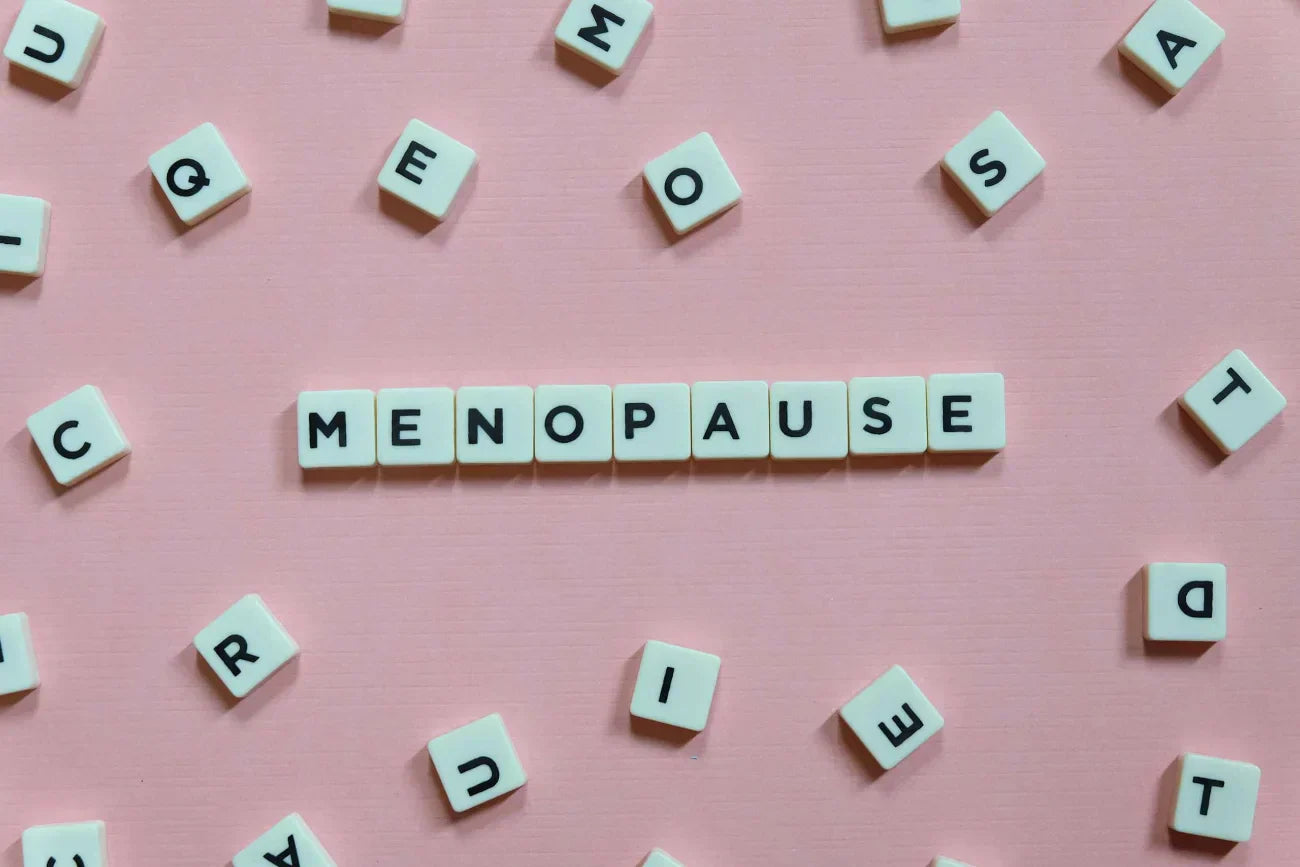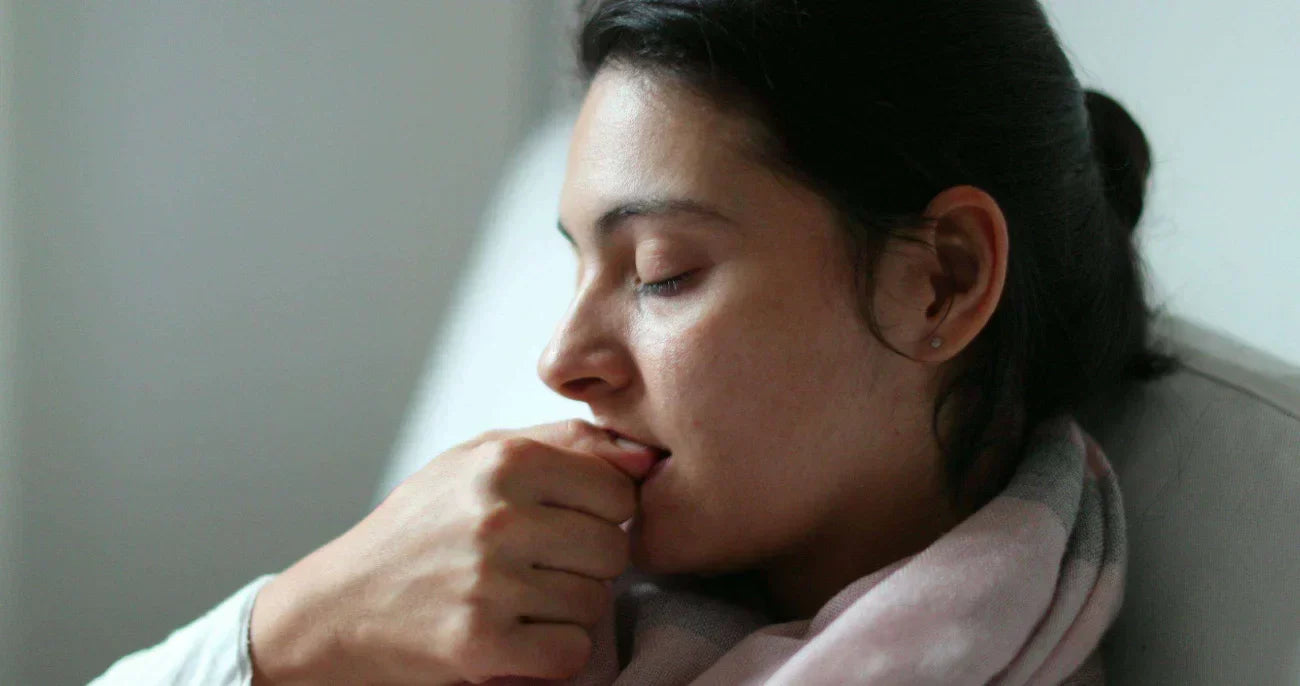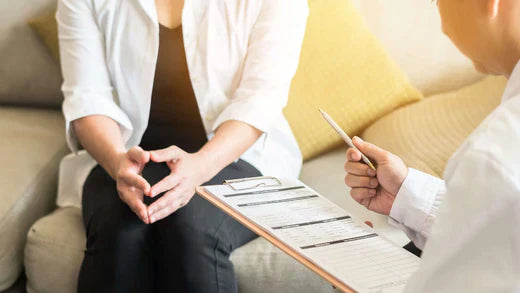Are you between 40 and 50 years old and suddenly suffering from sleep problems? Perhaps you feel more sensitive or less willing to have sex? These may be menopause symptoms or perimenopause symptoms, and maybe you are already close to one of these phases in life. If so, we invite you to read and learn about all the main menopause symptoms and how to handle them.
The importance of learning about menopause symptoms
Were you ever told that menopause could increase your risk for some health problems? Hence, the importance of educating yourself at an early age and knowing menopause symptoms and perimenopause symptoms in detail. Learning about them will allow you to recognize the beginning of these phases and take care of yourself to prevent complications. Also, evidence suggests that preparing before menopause and perimenopause helps you have a better life quality during these periods (1). Let`s take a look at the most common menopause symptoms:
Irregular Menstrual Cycles
During the perimenopause stage, an alteration of the menstrual cycle occurs. In general, you may not have the period, or they may happen closer together or further apart than you are used to. Also, the flow may be lighter or heavier than usual (2).
These irregularities are sometimes the first signs of the classic hormonal changes of this stage. The ovaries begin to produce fewer and fewer sex hormones (oestrogens and progesterone), which causes alterations in the menstrual cycle (3). It is important to mention that if you are postmenopausal (and have not had a period for 1 year) and then experience some bleeding, you must report this to your doctor, as soon as possible as this can be a sign of a more serious issue.
Hot Flushes
Hot Flushes are one of the most common menopause symptoms, and they can also occur during perimenopause. Hot flushes are a sensation of excessive heat, usually experienced in the chest and head, and it is commonly accompanied by redness and sweating. Some women report that it can also be accompanied by headaches, palpitations, upset stomach, nausea, or dizziness (4).
These symptoms originate due to the fall in oestrogen levels which affects the temperature control centre in the brain (5)(Webmd,2020).
Sleep Problems
Women who pass through this stage of life often have some sleep problems, and they may have less sound sleep and may also frequently wake up due to hot flushes (6). Increased anxiety that can occur during the menopause transition can also negatively impact sleep.
Menopause and Sexual Relations
Sexual desire of perimenopausal and menopausal women can be altered due to mood and emotional changes, as well as hormonal changes. Vaginal dryness or discomfort on intercourse can also impact on this. As a result, another of the symptoms of menopause is a decrease in libido. Some women have trouble feeling aroused and experience a decreased desire to have sexual relations with their partner or even masturbate (7).
Vaginal Dryness
Another menopause symptom which may begin during perimenopause is vaginal dryness, which can cause burning, itching, or discomfort in the area. It is also a frequent cause of pain during sexual intercourse (8).
All this happens due to the decrease in the production of oestrogens in the body. This, in turn, causes a thinning of the vagina walls, a decrease in blood supply to the area, and a reduction in the secretion of the genital glands. In addition, it is essential to highlight that the loss of collagen due to age also contributes to the thinning of the mucosa and vaginal dryness (9).
Urine Leaks and Other Urinary Problems
Women in menopause and perimenopause can have different urinary problems. Among the most common are urine leaks, incontinence or loss of urine, the urge to urinate, and urinary infections. This is due to changes in the mucosa of the urethra and vagina caused by the decrease in oestrogens (10).
Mood Changes
Another problem during menopause is mood changes. The most common is sadness, but anxiety symptoms may also appear (11). This may occur in part due to alterations in hormones and in neurotransmitters like serotonin.
Other Symptoms
In addition to the already mentioned menopause symptoms, in menopause and perimenopause, women can experience (12):
- Night sweats.
- Weight gain.
- Fatigue.
- Stiffness in the joints.
- Headaches or muscle aches.
- Anxiety.
- Depression.
- Memory impairment.
- Skin problems such as dry skin.
- Dizziness.
- Shortness of breath.

Relief of menopause symptoms
Believe it or not, a healthy lifestyle and a few home remedies can sometimes be enough to alleviate symptoms. In addition, they help prevent later health complications. Some ways to relieve menopause symptoms are (13)(Cleveland Clinic, n.d.):
- Eat a balanced diet that includes fruits and vegetables and small amounts of foods with saturated fat and added sugars.
- Perform moderate-intensity physical exercise for at least 30 minutes every day.
- Practice Kegel exercises to prevent urine leakage and improve sexual intercourse.
- Do activities that allow you to relax, such as yoga to alleviate sleep disorders and anxiety.
- Avoid the consumption of alcohol and stop smoking.
- Use a vaginal moisturiser to combat dryness and a lubricant to make intercourse more comfortable.
- Identify and reduce the triggers for hot flushes.
Medical Treatment
If you are experiencing menopause symptoms you can also choose to take a medical approach which would need a prescription from your doctor (14):
- Hormone therapy which is the first line treatment for most menopause symptoms
- Local vaginal oestrogens that seek to improve genital dryness.
- Antidepressants which can be helpful for some symptoms, particularly if hormone therapy is unsuitable, and can also be used for depression and anxiety treatment.
- Other specific drugs for the treatment and prevention of osteoporosis.
Alternative Therapies
In addition, some alternative therapies can help relieve symptoms, such as phytoestrogens These are a bit like oestrogens and they come from plants and some foods (such as soybeans, legumes, or nuts), and they can help some women with certain symptoms.
Menopause symptoms are very diverse and include physical and emotional problems. Lifestyle changes can help manage some of the symptoms. So being aware of them from perimenopause makes a difference to prepare ahead of time and improve your quality of life. However, if you feel that your day-to-day is being altered, do not hesitate to consult a doctor.
References
- Menopausal Symptoms and Their Management [Internet]. NIH; 2016. [Cited 2024 Sep 2016]. Available from: https://www.ncbi.nlm.nih.gov/pmc/articles/PMC4890704/
- Perimenopause [Internet]. Mayo Clinic; 2023. [Cited 2024 Sep 16]. Avaiable from: https://www.mayoclinic.org/diseases-conditions/perimenopause/symptoms-causes/syc-20354666
- Eisenberg E. My Periods Have Changed. Is Menopause Around the Corner? [Internet]. ACOG.org; 2020. [Cited 2012 Sep 26]. Available from: https://www.acog.org/womens-health/experts-and-stories/the-latest/my-periods-have-changed-is-menopause-around-the-corner
- Schaeffer J. Are Headaches a Symptom of Menopause? [Internet]. Healthline; 2016. [Cited 2024 Sep 16]. Available from: https://www.healthline.com/health/menopause-headaches
- Shrithi N. Why An I So Hot? [Internet]. WebMD; 2024. [Cited 2024 Sep 16]. Available from: https://www.webmd.com/menopause/why-so-hot
- How Does Menopause Affect My Sleep? [Internet]. Hopkinsmedicine.org. [Cited 2024 Sep 16]. Available from: https://www.hopkinsmedicine.org/health/wellness-and-prevention/how-does-menopause-affect-my-sleep
- Yes, you can have better sex in midlife and in the years beyond [Internet]. Harvard Medical School; 2021. [Cited 2024 Sep 16]. Available from: https://www.health.harvard.edu/womens-health/yes-you-can-have-better-sex-in-midlife-and-in-the-years-beyond
- Currie H. Vaginal dryness. [Internet]. Women´s Health Concern; 2023. [Cited 2024 Sep 16]. Available from: https://www.womens-health-concern.org/help-and-advice/factsheets/vaginal-dryness/
- Bachmann G. Patient Education: Vaginal Dryness (Beyond the Basics). [Internet]. Uptodate; 2020. [Cited 2024 Sep 16] Available from: https://www.uptodate.com/contents/vaginal-dryness-beyond-the-basics
- Menopause & urinary symptoms [Internet]. University of Colorado Urogynecology; 2012. [Cited 2024 Sep 16]. Available from: https://urogyn.coloradowomenshealth.com/conditions/bladder/menopause-urinary-symptoms.html
- Menopausal anxiety [Internet]. The Center for Treatment of Anxiety and Mood Disorders. [Cited 2024 Sep 16]. Available from: https://centerforanxietydisorders.com/treatment-programs/menopause-anxiety/
- Orenstein BW, Smythe K. Surprising menopause symptoms [Internet]. Everydayhealth.com. [cited 2024 Sep 16]. Available from: https://www.everydayhealth.com/menopause-pictures/menopause-symptoms-that-may-surprise-you.aspx
- 6 Ways To Find Relief From Your Menopause Symptoms [Internet]. Cleveland Clinic; 2022. [Cited 2024 Sep 16]. Available from: https://health.clevelandclinic.org/natural-menopause-remedies
- Hormone replacement therapy (HRT) [Internet]. nhs.uk. [cited 2024 Sep 16]. Available from: https://www.nhs.uk/conditions/hormone-replacement-therapy-hrt/
You May Also Like

JOIN US AND GET 10% OFF
Sign up to our newsletter to access free resources, advice and support.















